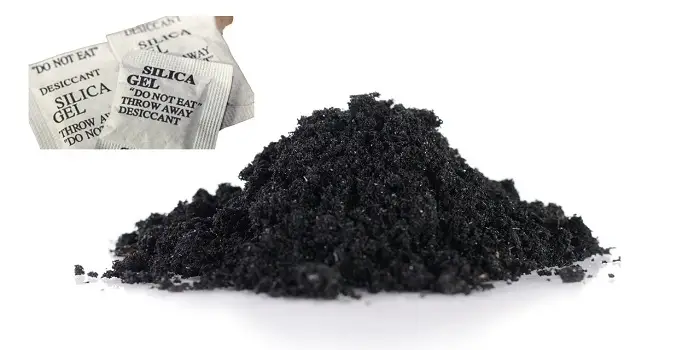The bottling of refined oil and extraction of silica from rice husk ash (RHA) are two critical industrial processes that support the agro-processing and chemical industries, respectively. While refined oil bottling ensures safe, hygienic, and efficient distribution of edible oils, the recovery of high-purity amorphous silica from RHA adds significant value to agricultural waste, making it an eco-friendly and commercially viable venture.
Understanding Refined Oil Bottling: Process and Technology
1. Oil Refining Overview
Refined oil undergoes multiple stages including degumming, neutralization, bleaching, dewaxing, and deodorization. The final product is clear, odorless, and free from impurities, suitable for human consumption. Post-refining, bottling is a crucial step to maintain quality and extend shelf life.
2. Bottling Line Infrastructure
A modern edible oil bottling line typically includes:
-
Automatic Bottle Unscrambler – Aligns and feeds bottles into the production line.
-
Oil Filling Machine – Utilizes piston or flowmeter technology for accurate filling.
-
Cap Sealing Machine – Ensures tamper-evident sealing.
-
Labeling System – Applies labels with product information, batch number, and expiry date.
-
Packing Station – Automates carton packing for bulk shipment.
3. Types of Bottles Used in Refined Oil Bottling
-
PET Bottles: Lightweight, transparent, and recyclable.
-
HDPE Containers: Preferred for larger volumes due to durability.
-
Glass Bottles: Used for premium oils with aesthetic packaging requirements.
Related Business Plan: Silica from Rice Husk Ash
4. Quality Control in Bottling Process
Refined oil is tested for:
-
Peroxide Value
-
Free Fatty Acids (FFA)
-
Color and Clarity
-
Sealing Integrity
Proper bottling reduces oxidative degradation, maintains nutritional quality, and ensures compliance with FSSAI or international food safety standards.
Silica from Rice Husk Ash: A Valuable Industrial Product
Rice Husk Ash (RHA): A Sustainable Silica Source
Rice husk, an agricultural waste, comprises 15-20% silica content. Upon combustion, it transforms into rice husk ash, rich in amorphous silica—a valuable raw material used in rubber, paints, pharmaceuticals, and ceramics industries.
Process of Extracting Silica from RHA
Collection and Pre-treatment of RHA
The ash is collected from controlled combustion of rice husk, ensuring the presence of non-crystalline silica.
Acid Leaching
The ash is treated with hydrochloric or sulfuric acid to remove metallic impurities like Fe, Al, Ca, and K.
Washing and Filtration
Neutralization with deionized water is conducted until the pH stabilizes around 7.0. Filtration removes insoluble residue.
Alkaline Extraction
RHA is mixed with sodium hydroxide (NaOH) at elevated temperatures (~90°C), converting silica to sodium silicate.
Silica Precipitation
By acidifying the sodium silicate solution (using H2SO4 or HCl), gelatinous silica is precipitated.
Drying and Pulverizing
The silica gel is washed, dried at 100–120°C, and ground into a fine white powder.
Visit this page for more information: Start a Business in Rice Husk-Based Products Industry
3. Properties of RHA-Derived Silica
-
Purity > 95%
-
Surface area: 200–400 m²/g
-
Particle size: 20–100 nm (nano-silica)
-
Amorphous phase stability
4. Applications of Extracted Silica
-
Rubber reinforcement (tyres, footwear)
-
High-performance concrete
-
Pharmaceutical excipients
-
Desiccants
-
Personal care and cosmetics
Synergistic Industrial Model: Edible Oil and Silica Plants
Several agro-industrial zones can benefit by co-locating refined oil bottling units and RHA silica plants, leveraging:
-
Common energy infrastructure
-
Shared waste management systems
-
Circular economy models
Example: Husk combustion residues from oil processing mills can directly feed silica plants, cutting raw material costs and lowering environmental impact.
Read our book here: Manufacture of Value Added Products from Rice Husk (Hull) and Rice Husk Ash (RHA) (2nd Revised Edition)
Sustainability and Economic Impact
1. Environmental Benefits
-
Waste Reduction: Utilizing rice husk, a commonly burned agricultural waste.
-
Energy Efficiency: Use of bio-based fuels for combustion.
-
Emission Control: Modern incinerators ensure minimal release of particulate matter.
2. Economic Advantages
-
Value Addition to Agricultural Byproducts
-
Increased Rural Employment
-
Import Substitution for High-Grade Silica
-
Low Capital Investment for Modular Plants
Challenges and Solutions in Implementing These Processes
1. Technical Challenges
-
Maintaining consistent combustion temperature for amorphous silica.
-
Ensuring oil filling machine calibration for high viscosity oils.
Solution: Use of PLC-controlled systems and real-time process monitoring.
2. Market Barriers
-
Lack of awareness about RHA silica potential.
-
Volatility in edible oil market prices.
Solution: Government support via subsidies, startup incubation, and market linkage schemes.
3. Quality Assurance
Consistent product testing, certification, and compliance with:
-
ISO 22000 for edible oil
-
ISO 9001 & REACH for silica
Read our Book Here: Handbook on Modern Packaging Industries (2nd Revised Edition)
Future Trends and Innovations
-
Nano-silica development for high-end electronics and biomedical uses.
-
Automated AI-driven oil bottling lines for predictive maintenance and reduced downtime.
-
Integration with IoT and cloud systems for remote monitoring and smart logistics.
Conclusion
The bottling of refined oil and extraction of silica from rice husk ash represent two powerful examples of how agro-industrial innovation can enhance both economic and environmental outcomes. From ensuring food-grade oil distribution to transforming waste into high-purity silica, these sectors offer high scalability, sustainability, and profitability when executed with precision and compliance.
For in-depth industrial project reports, feasibility studies, and detailed technical consultancy related to refined oil bottling, silica from rice husk ash, and numerous other manufacturing and processing sectors, we highly recommend visiting –> NIIR Project Consultancy Services. Their extensive database and expert guidance can help you turn your ideas into profitable ventures.






